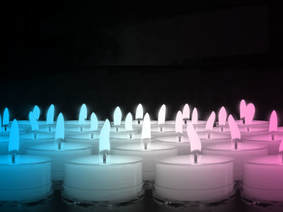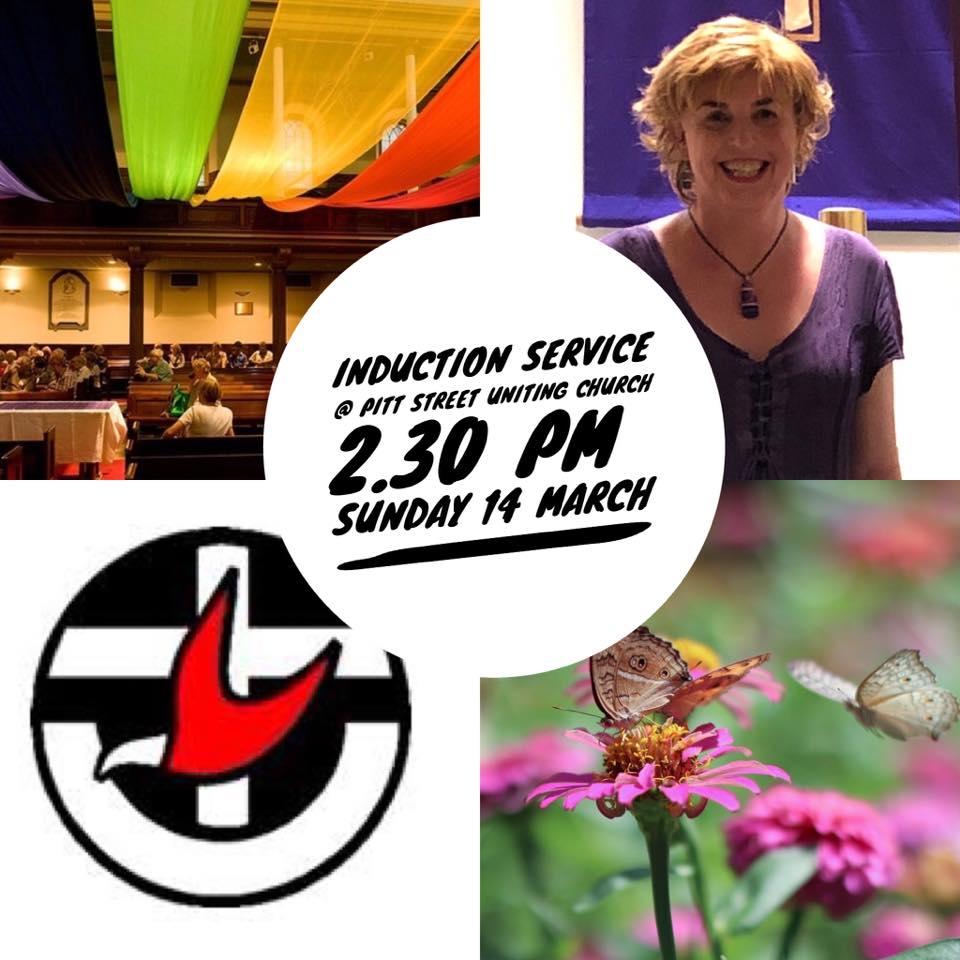|
One interesting contemporary term I’ve found helpful recently is ‘onlyness’ - in both its negative and positive aspects. ‘Onlyness’ certainly speaks to my experience both practically (in negotiating the deafening demands of ‘sameness’ and ‘togetherness’ in world and church) and spiritually (in seeking sources, connections and pathways to flourish).
Negatively, as this week’s inaugural LGBTIQ+ Leadership Summit in Sydney highlights in its introduction, despite significant advances (especially for L & G folk - T & I have a little more to see) queer ‘onlyness’ continues to be an issue in business and public life (even without including church spaces) and it is still hard for so many of us in simply pursuing our careers and vocations: ‘A 2020 McKinsey report identified that LGBTIQ+ staff are more likely to encounter microaggressions, experience sexual harassment (especially women), and become disengaged within their organisation due to “onlyness”. Despite the overwhelming ethical and financial business case for LGBTIQ+ inclusion, it simply hasn’t happened. It is reported too often that LGBTIQ+ staff are excluded from promotion, are overlooked by superiors, and concerns regarding their gender and sexual orientation are dismissed.’ Being queer in the Church (even more tolerating and passively ‘inclusive’ spaces) sometimes feels like such ‘onlyness’ with bells on (sometimes the sort of bells tolled perhaps to warn people of the plague?). In the best of our mainstream Churches the obsessions with institutional ‘unity’, limited ‘brand’ identity, and not ‘rocking the boat’ also militate against receiving the gifts of ‘onlyness’ - even though they are an essential part not only of the continuing features of spiritual health in Churches but are also pathways forward if they were fully received. The reality is that ‘onlyness’, spiritually speaking and in many manifestations, has always been essential to positive life and change in secular and faith spaces. A key saving grace of both my native C of E (Anglican), Reformed ‘liberty of conscience’ and wider Christian tradition has always been those who have lived into and out of their ‘onlyness’ - for it is from the depths of spirit, inner truth, our authentic dreams and stirrings, that true flourishing comes. We are most certainly created to be social creatures, and our onlyness bears fruit and is enriched in mutual relationship with others, especially where they seek to honour and share their own ‘onlyness’. Yet so much remains, and rises afresh, to work against this - not least sadly in so many Church spaces - as organisations, communities and individuals settle for conformity and complacency (as well as coercion at times), resting on outdated assumptions and harmful stereotypes, unchanging inherited or ‘functional’ structures, and suspicion, or worse, of ‘onlyness’ (even in some faith traditions which speak of ‘conscience’ and being ‘prophetic’). The LGBTIQ+ Leadership Summit puts it clearly: ‘LGBTIQ+ leaders have a strong legacy of driving positive change – even in the most difficult circumstances. In the 2020s, an era of the socially aware and responsible consumer, large organisations cannot afford to merely provide lip service to LGBTIQ+ inclusion.’ The same might be said of other leaders among us who lead from out of their ‘onlyness’ - not least the extraordinary First Nations leaders who have walked with, inspired, and strengthened me in singing new life in faith spaces (and without whom I’d have given up long ago) Like ‘onlyness’ however, such people not only need honouring, but supporting and releasing into greater life.
0 Comments
I have been quite moved this week - with all kinds of trans pride, past trauma and hope rising up - as the reality sinks into my body and consciousness that the Uniting Church makes a vital little bit of history this Sunday. For we hold the first ever Induction in a mainstream Australian Church of an openly transgender ordained person (as distinct from allowing someone to continue in an existing role after coming out) - and without all the cruel insistence on justifying trans existence so often present around us. Trans people do not need churchy validation, but, my God, as I know from others, it makes such a difference for so many journeys of affirmation and empowerment when pathways are opened. It is a huge tribute to those who have made the way - to trans and other queer people ourselves, and not least to those in the Pitt Street story who've created the ground for this and other things (not least my distinguished predecessors). Of course, this placement is about much, much more, but it is one significant aspect. There's a long way to go, but I'm so proud of the Uniting Church in this, and pray that it may be a contribution to the much needed changes in law, health, and education required to support gender diverse people who are currently under such attack (not least in New South Wales right now. I'm also thrilled to have so many different people attending, and messages of encouragement, from right across the Christian and community spectrum, and I know that what we share on Sunday is part of the broader changes coming into being also. May all people and their/our gifts flourish!
 What does remembering mean for gender diverse people and the body of Christ? I ask that question because, on this All Saints Day, we begin a period of remembrance in both church and world: not least of saints, heroes and role models; of loved ones departed; of the destruction of war; and (in the Transgender Day of Remembrance on 20 November) of transgender and gender diverse people murdered across the globe. My sense is that these things are not unconnected and that they come together because (whatever kind of spirituality we have) all human beings need some dedicated time and space in the cycles of the seasons to engage in what is the 'sacred' task of re-membering. November works, globally, for us all in this: for in the southern hemisphere it marks the drawing to the close of the working year and, in the northern, it marks the coming of the darkness of winter. Not for nothing have human beings also traditionally begun preparing for a mid or end of year festival of light and celebration (known variously but to most today as Christmas). To do that properly however - particularly where death, violence, loss, grief and/or family separation are still real - we need to re-member. So what truths, healing and fresh purpose are we seeking to affirm, and receive, in this, as gender diverse people?... |
AuthorThe Revd Dr Jo Inkpin: Archives
March 2024
Categories
All
|

 RSS Feed
RSS Feed